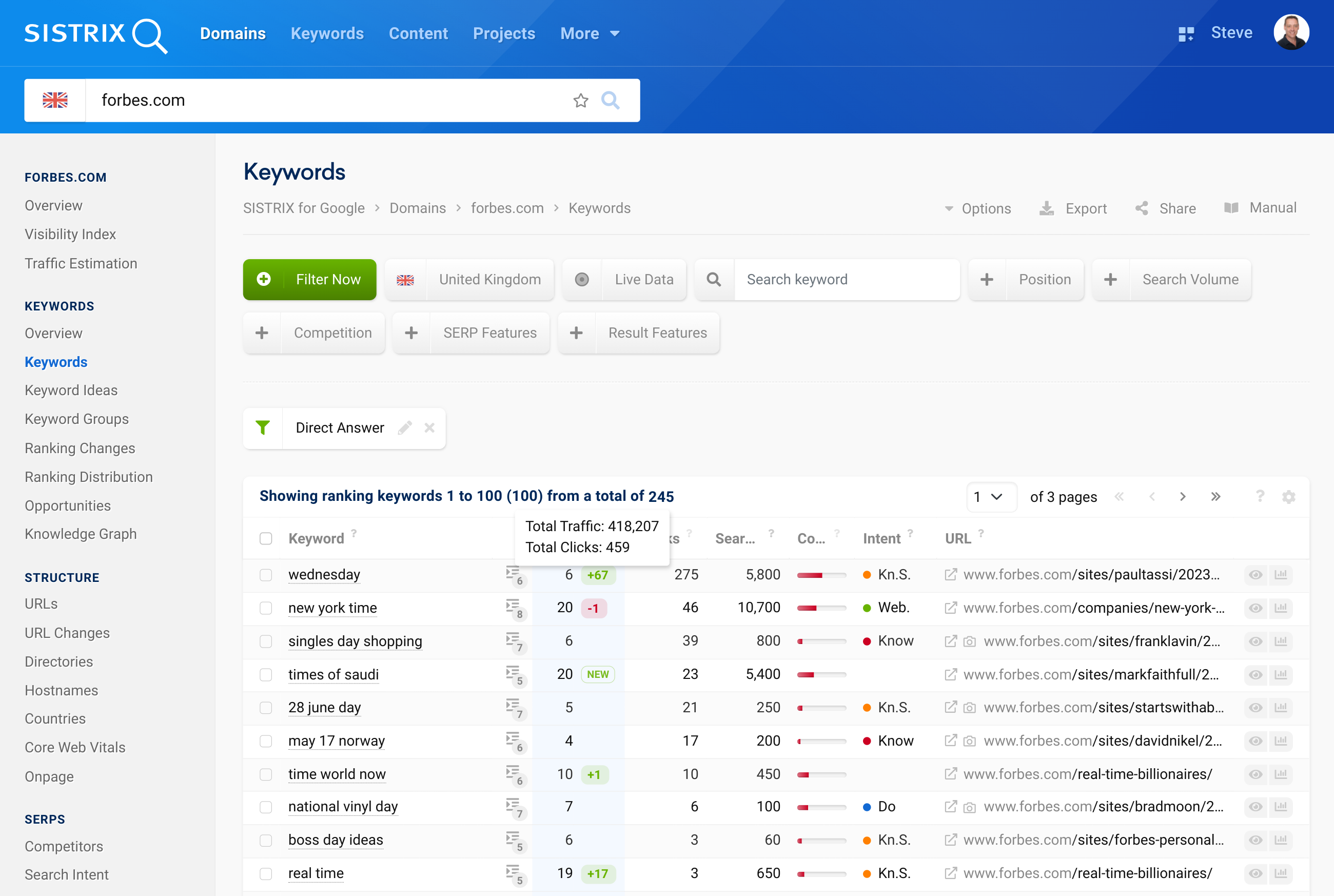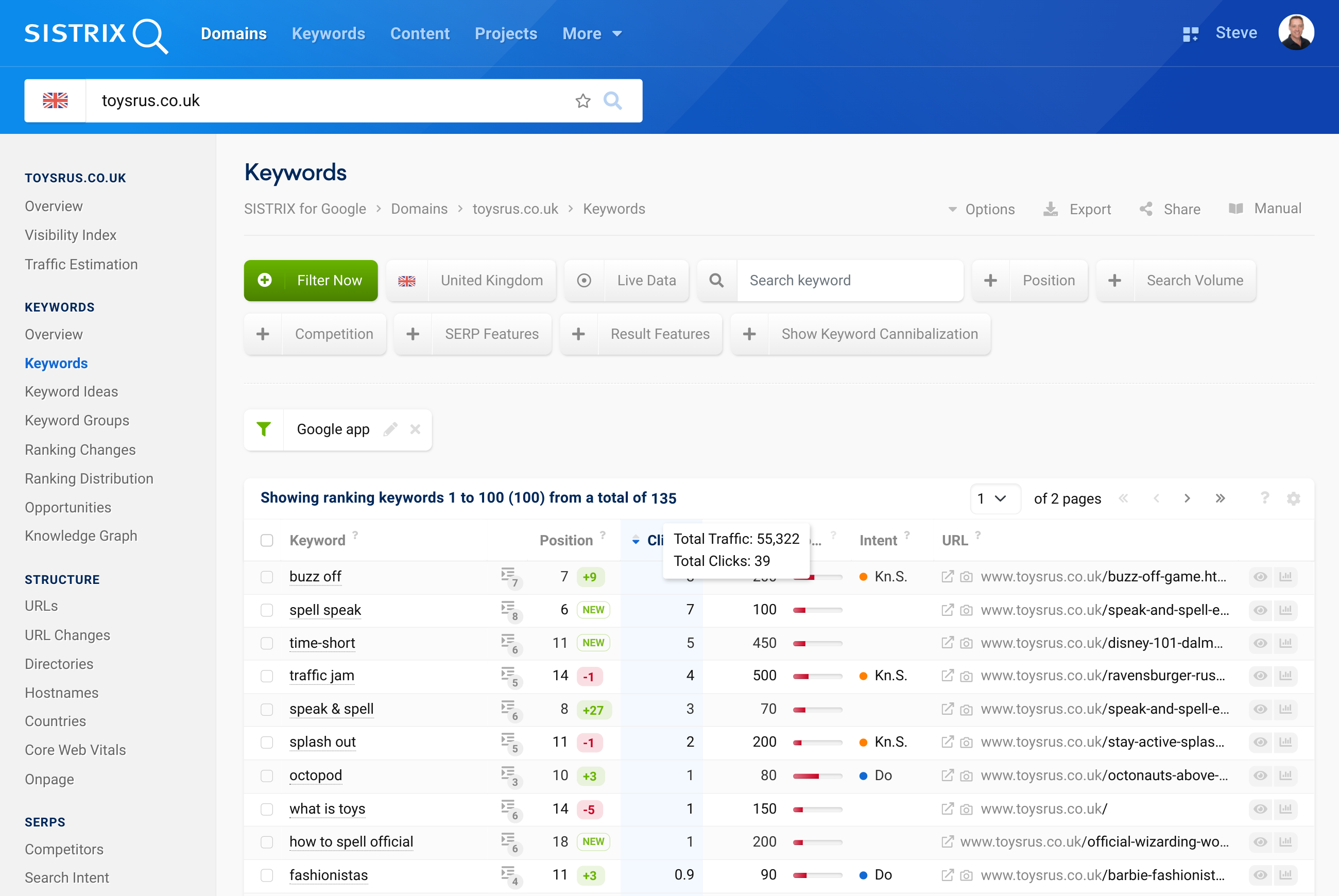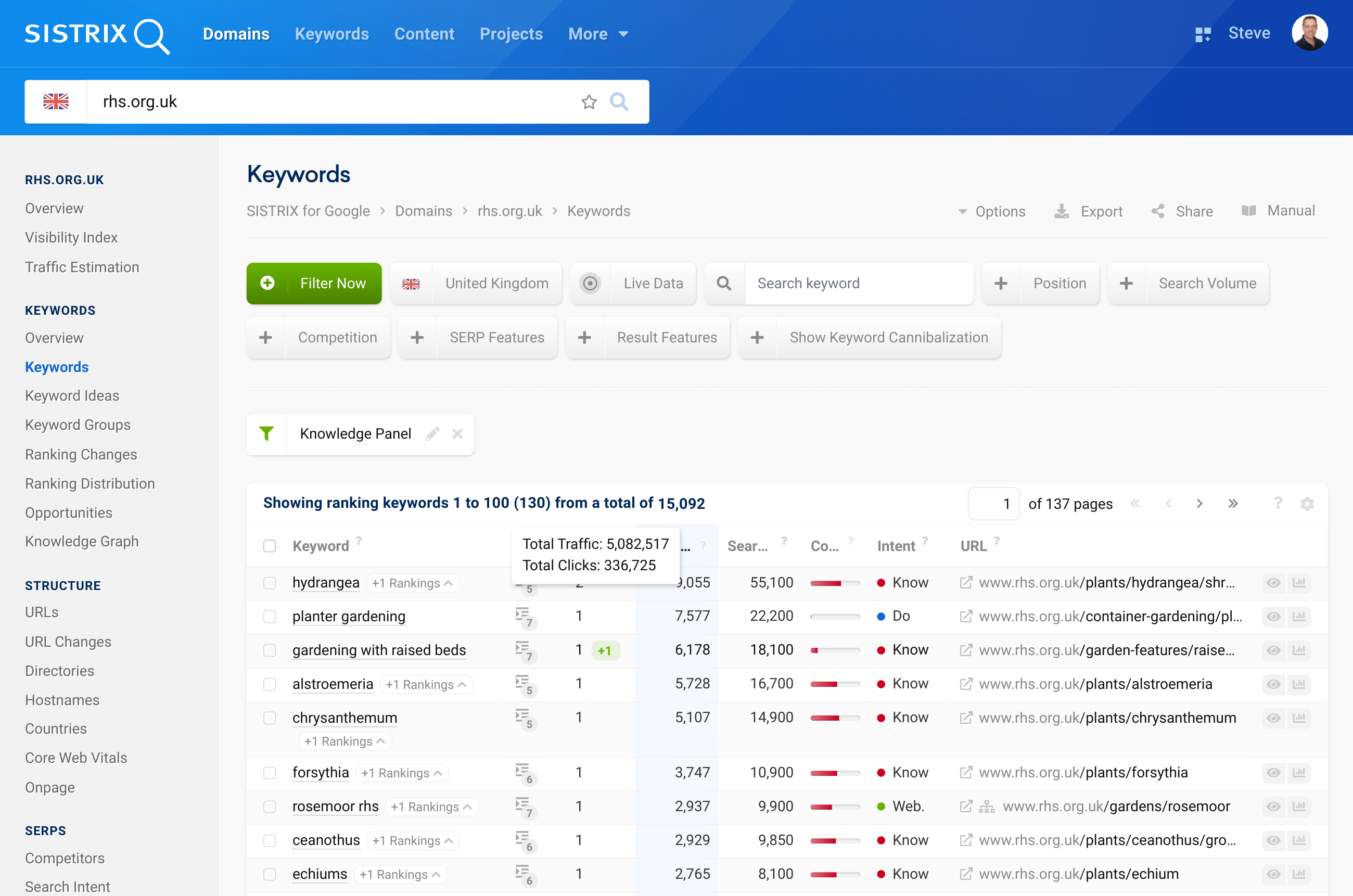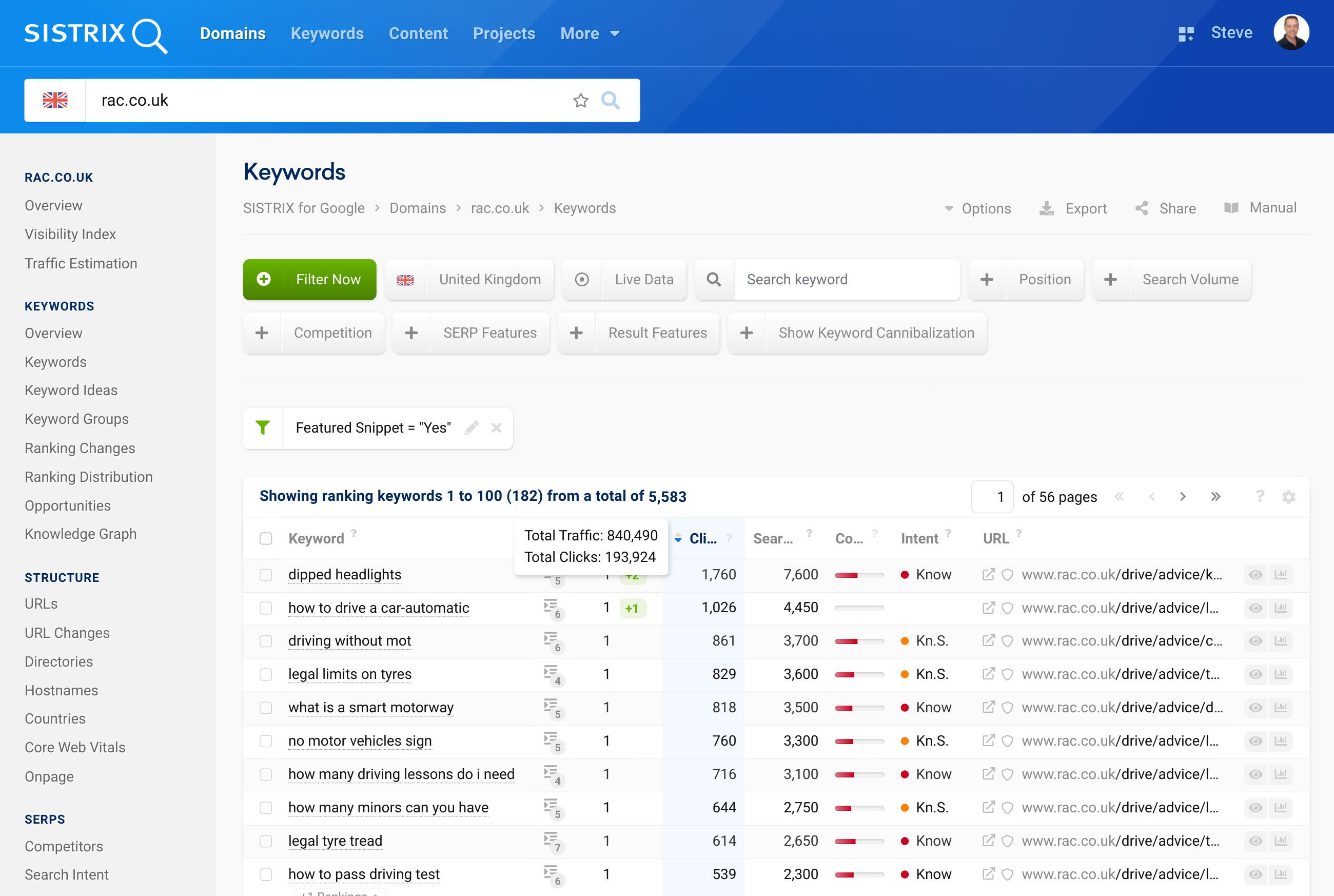After this week’s AI presentations from Microsoft and Google , it’s clear – Search will see more changes in the near future than in the previous ten years. Although it is still unclear what the future will look like, we’ve already had the first glimpses.
Both Microsoft and Google will integrate AI-powered summary answers directly into search results. SISTRIX already has suitable filter and analysis features that allow you to immediately assess the consequences of this for the traffic received from search engines.
Direct Answer
There are already a number of answers that Google can give directly in the search results. For example, if you search for “time”, Google will show the current time as the first result. However, unit conversions and similar searches also lead to these direct answers.

As you can see from the ranking keyword list from forbes.com in the UK, some of which include the feature above some organic search results, there is almost no traffic available for the websites. From over 400,000 searches a month, the site receives a potential 459 clicks.
Conclusion : AI results will not change much here, these keywords are already lost for SEOs.
Google app
The Google applications can be seen slightly differently, but the end result is the same for the website operator. Here, Google also shows the result directly at the top of the SERPs, and offers the user the opportunity to interact.

Seen in a SERP screenshot for searches can have a dictionary entry to match the search intent. Not much changes for the website operator. From over 2 million searches per month for wikivoyage.org, only 4007 clicks go to the website.
Conclusion: here, too, there will be no noticeable change as a result of the AI integration.
Knowledge panel
It gets more interesting with the next type of SERP feature. Knowledge panels, the integration of information from the knowledge graph, take on a large variety of forms. What they all have in common, however, is that Google sees them as their “own” results. Sources are sometimes linked (as inconspicuously as possible), but you won’t find the large attribution and link to the source as with normal results.

Due to the positioning above organic search results in the mobile SERPs, these features already grab a lot of attention – but there are still clicks for organic results. My guess is that Google will use AI-generated content for text passages in Knowledge Graph panels in the future. As a result, these can also be longer and push the organic results displayed further down from the searcher’s field of vision.
Conclusion: Keywords that also display a Knowledge Graph Panel in the result will continue to lose value as the number of organic clicks decreases.
Featured snippet
In my opinion, the most important thing to pay attention to is the future of featured snippets. Currently placed very prominently at the beginning of the search results, the attribution of the source is still present and attracts a lot of clicks – favicon, heading and URL are clearly related to the content and are also used by searchers.
Website operators with high-traffic featured snippets achieve a lot of organic traffic via this integration.

If you compare the current search results that include featured snippets with the example that Google presented in the blog post, it quickly becomes clear in which direction things will go: in the future, featured snippets will be provided by Google and no longer by website operators. The attribution of the source and of course the associated organic traffic is eliminated.
Conclusion: Anyone who achieves a high proportion of organic traffic via featured snippets today should expect this traffic to disappear in the future. By using AI content, Google itself becomes the source and no longer has any reason to divert visitors out of its own ecosystem.
Summary
Keywords for which Google displays a direct answer or Google app above the search results are already lost for organic traffic – the integration of an AI element will not change that.
Keywords with a Knowledge Panel integration are likely to reduce organic traffic. Featured snippets are most at risk – here I expect that Google will replace the sources with its own, AI-generated content in the future and thus keep the traffic on the search results page.
The corresponding SERP features and hit characteristics can be easily filtered in SISTRIX. If you hover your mouse over the number of rankings, we now also display the sum of the search volume and clicks for the filtered keywords – this allows the risk of each domain to be analyzed quickly and easily.

